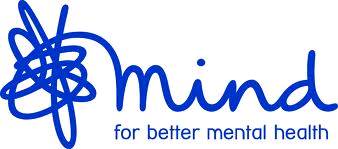- Portfolio total project costs: £3,163,970
- Total funding received from BIG: £3,163,970
- Total number of beneficiaries: 31,173
Activities
Mind delivered a wide range of awareness raising activities and campaigns through its Time to Change portfolio. This included seven media engagement events and seminars aimed at people working in different parts of the media reporting on mental health. Separate events were run for: journalists working in broadcast news (TV and radio news, in partnership with BBC Diversity Unit), sports journalists (in partnership with BBC Sport), people working in entertainment and reality TV programmes (Channel 4), youth media, regional news (editors of regional newspapers), black and minority ethnic portrayals in the media and picture editors. The project lead explained:
“The strategy behind the events was a business to business strategy, peer to peer educating programme about mental health”. (Media engagement lead, Mind).
Each event included a panel session featuring a journalist who had received a positive response to their coverage of mental health issues. For example the broadcast news event focused on the reporting of mental health issues in the news and featured Victoria MacDonald, the Health and Social Care Correspondent from Channel 4 News, Sian Williams a journalist from BBC News, and Toby Castle from ITV. The panel shared experiences and learning around reporting on mental health issues and securing a positive response. The peer education approach was very successful in engaging journalists. Each panel also included several people with lived experience of mental health issues, who reflected on their experience of these types of media. The delivery setting was also important:
“We worked in partnership with media organisations. For example with the news event we worked with the diversity team at the BBC. We held the event in Broadcasting House, so we were actually in the building. So it made it really easy for journalists to come along, we were holding it at the end of their working day in their environment. We also had the backing of the BBC who promoted it internally to staff, particularly staff from the news room who the event was really targeted for”. (Media engagement lead, Mind).
Two seminars explored specific issues: how media consumed by young people shapes their understanding of mental health; and media stories about people from black and minority ethnic communities who have mental health problems. A ‘Get the Picture’ campaign was also delivered to improve images used to illustrate media stories about mental health124, and research was commissioned into how mental health issues are covered in print media (Mind Over Matter).
The news event was attended by over 80 attendees. Key themes included: the language used in reporting on mental health, ethics, making contributors feel comfortable, reporting on self harm and suicide, and signposting for advice and support. The overall goal of the events was for journalists to feel more confident in reporting on mental health issues.
Participant/community impacts and sustainability
The portfolio worked towards a key change indicator around delivering seven Meet the Media events to 420 media professionals. Of these, targets were set for 65% to improve their understanding of mental health issues, and 50% to use this knowledge in media reports/programmes. The portfolio engaged a lower number of media professionals than originally anticipated, but the proportion of participants reporting a change was higher than the original target. By the end of the grant, 309 media professionals had attended seven events, with 72% reporting improved understanding of mental health issues, and 77% stating they had used this knowledge in media reports/programmes. A lower number of media professionals were reached overall as the portfolio found that smaller roundtable discussions were more appropriate for the events focusing on young people and black and minority ethnic communities.
Media professionals recommended the sessions to their colleagues, and Mind was invited to run events for their colleagues. For example, BBC Sport asked Mind to run the same event for their colleagues at Sky Sports in-house, and after the BBC News event, Channel 4 News asked Mind to run the event for their staff in-house:
“One of the really important things to come out of it was how we made connections that then led to further opportunities, so the event itself was not an end-point, it then led to a further event”. (Media engagement lead, Mind).
Mind had also been invited to run a workshop for staff at Manchester Evening News.
Further information about the media events can be found online at:
http://www.time-to-change.org.uk/media-advice/media-events
A number of films made at the events are available to view online:
- Sports Journalism event http://www.time-to-change.org.uk/sportsjournalism
- Entertainment and Reality TV event http://www.time-to-change.org.uk/Entertainment%20%26%20Reality%20TV
- Youth Media event http://www.time-to-change.org.uk/media-event-youth-media
- Black and Minority Ethnic issues in the media http://www.time-to-change.org.uk/BMEmediaevent
Time to Change has successfully secured funding (£4.6 million) for a programme of work in 2015/16 from the Big Lottery Fund (£1.1 million), Department of Health (£2.5 million) and Comic Relief (£1 million)

